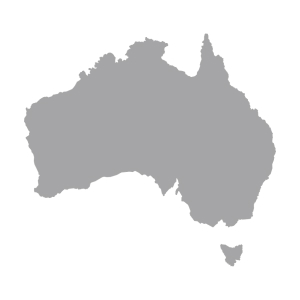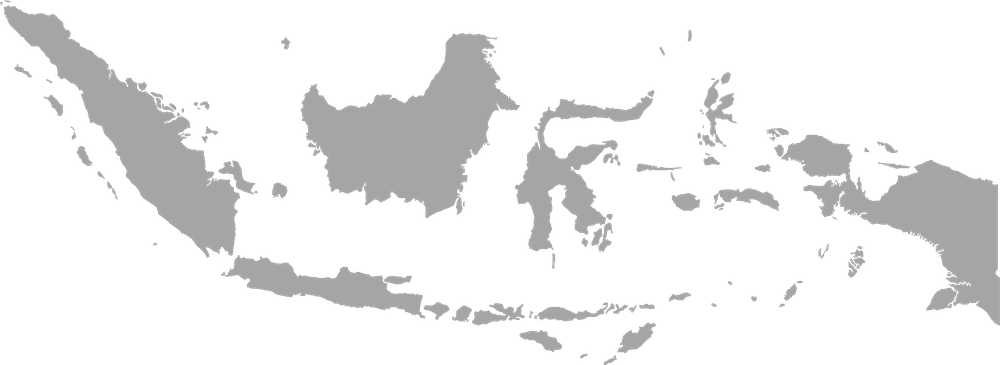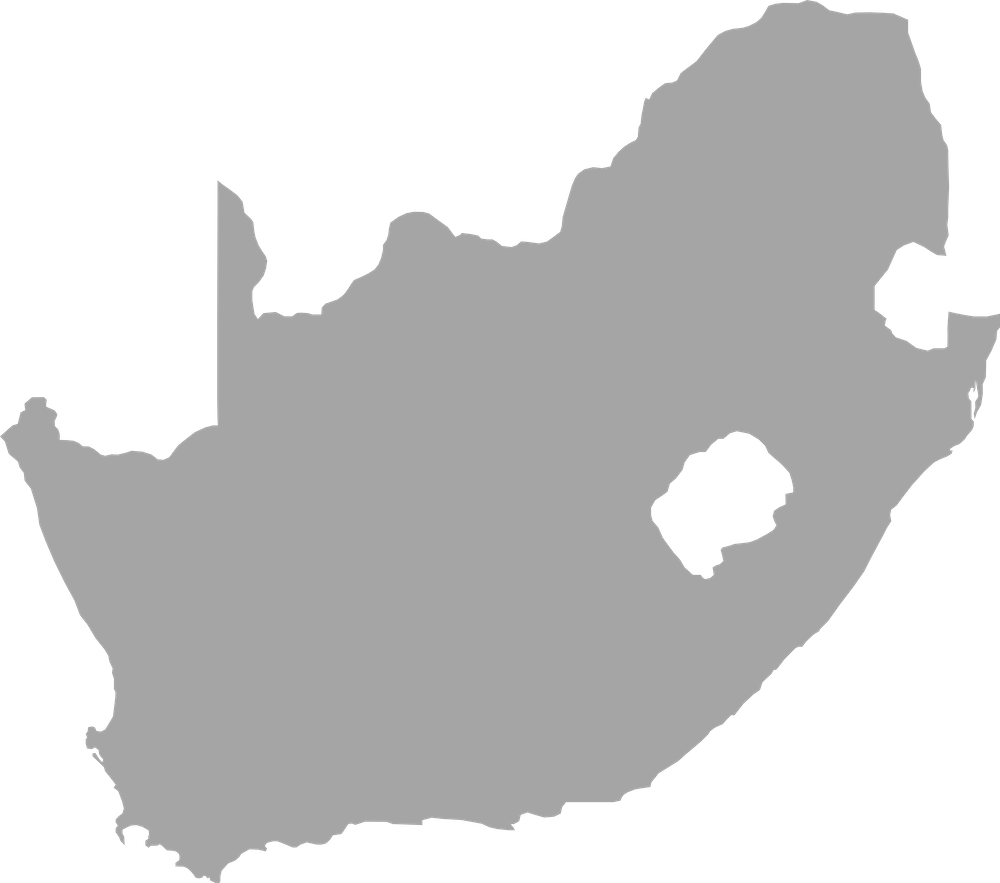CNTI’s Summary
Independent journalism is critical to functioning democracies. As the global news industry largely continues to face financial struggles, governments have responded with a range of policy initiatives to provide economic support to commercial, public and local news media. Among these, recent media bargaining legislation in Australia and Canada has become the starting point for policy debates in many parts of the world. These policy debates bring several challenges to light, including tensions between the news as a public good versus a market product, the role of public policy in compensating for market forces and the risk of increasing media dependence on, and undue influence from, governments and platforms. Policy aiming to support the economic sustainability of news media cannot be one-size-fits-all; it must be context-sensitive and protect media independence, free expression and an open internet.
The Issue
For decades, the commercial business model of bundled news with embedded advertising generated high profitability for publishers. The internet gave rise to new structures for news consumption as well as new and more targeted ways for advertisers to reach people. As the digital landscape evolved and more of the public moved online, the traditional news business model became obsolete and the news industry plunged into financial crisis.
Simultaneously, the role of news publishers began to change, particularly when it came to distribution of news. While the advent of digital platforms (primarily social media and search engines) broadened news publishers’ access to potential audiences, it also left publishers more dependent on these intermediaries.
Amid these changes, the news industry has made efforts to develop new business models such as building digital subscribers, donations, grants, membership events and other means of funding. While there have been some successes, the news industry has not been able to generate the levels of revenue it had previously enjoyed. Because news is critical to functioning democracies, governments and civil society have responded to economic challenges in the news industry with a range of policy initiatives aimed at providing financial support.
When it comes to commercial news media, a range of proposals to provide financial support exist, but most notable are recent media bargaining legislation in Australia and Canada, which have inspired policy debates in many parts of the world. Earlier attempts to provide financial support for news were often based on copyright law, but these policies are based on competition (antitrust) law, requiring digital platforms to negotiate payment to news publishers on the grounds that platforms have financially benefited from digital advertising by providing links to publisher content without due compensation. Other efforts, such as in the U.S., aim to create exemptions to antitrust law to bring technology companies to the bargaining table.
In response to some of this legislation, technology companies such as Meta and Google have begun to shift away from news altogether, calling the legislation unworkable for a number of reasons, including concerns over their own financial liabilities. This shift away from news would almost certainly harm publishers’ (and particularly smaller publishers’) ability to reach audiences and inhibit the public’s ability to access legitimate news sources and information.
There are also ongoing policy debates surrounding what is perhaps the most substantial form of direct government intervention in the news industry: support for public service media. In many democracies, public media sit at the center of the news ecosystem, making them key players in debates around public policy aimed at enabling independent, competitive journalism. However, public media also continue to face many of the same threats as the commercial news industry, including challenges with digital transitions, decades of budget cuts and, in some cases, political attacks. As we address later in this primer, policy discussions surrounding public versus commercial news media support are often siloed or considered at odds with one another (despite little to no evidence to date supporting the theory that public media support ‘crowds out’ or shrinks commercial news audiences).
Attempts to regulate economic support for the news industry introduce difficult but critical questions about the balance between news as a public good versus a market product, the role of public or local media and freelance journalists in the news ecosystem, the tension between content neutrality and curbing mis- and disinformation, the challenge of making complex and proprietary platform infrastructures publicly governable and accountable, the potential implications of government involvement in news media revenue structures and the role of public policy in compensating for market forces (versus changing them) in the public interest.
It is critical to address the economic sustainability of the news industry, which includes promoting a pluralistic, diverse and innovative media ecosystem, local and public news, and broader public access to news. However, these multistakeholder conversations must be guided by evidence-based practices that reflect strengths and weaknesses of policy-driven news support, with an eye toward media independence, plurality and transparency.
What Makes It Complex
These debates raise the broader question of whether, or to what extent, governments can and should save independent journalism from financial crisis.
Democratic governments are obligated to protect fundamental rights, including the basic freedom to access and share information. However, protecting free expression alone is not enough to sustain the news media. Strong legal protections of the press in countries like South Africa and the U.S. have not protected their news industries from financial struggles. Policymakers can help to enable an environment supportive of an independent, competitive press – if they are willing to commit resources to these efforts, prioritize strong governance and protect editorial independence.
Legislation must be sensitive to a country’s context and media environment, which makes replicable or one-size-fits-all approaches ineffective.
While early efforts to address the economic sustainability of news media can help inform approaches in other parts of the world, there are also lessons to be learned beyond these narrow (i.e., largely Global North) contexts. Approaches to developing domestic policy must consider the specific country’s media environment and history. For example, histories of governmental press control or low levels of institutional trust may influence some countries’ approaches to or perceptions of government involvement in funding or supporting news media. Other challenges, particularly for emerging democracies, may include less instructive experience, limited support and resources, weakened civil society, and government control of media associations or press councils that would shepherd such changes or existing legal structures (e.g., laws preventing tax revenue from going toward news media).
Holistic solutions for media sustainability may not be possible, or even preferred, but piecemeal responses may make it more difficult to create lasting solutions or to measure success.
For instance, despite evidence that countries with well-funded, independent public media consistently have stronger democratic outcomes, public media (as well as local media) are often dealt with in separate policy initiatives from commercial news media. Public service media are, in theory, meant to serve the whole public, meaning that – when truly independent – they can play a key role in providing free public access to information and making attempts to combat disinformation. Countries that address commercial media sustainability but do not address public or local media sustainability risk perpetuating existing inequalities in news access and diversity and continuing to serve audiences who are already better-served.
If a primary concern driving legislation is to address news publishers’ increased dependence on digital platforms, it is especially critical to ensure that legislation does not inadvertently create more dependence on, provide more power to or constrain scrutiny of these companies.
Legislative policy that puts platforms in charge of negotiating with news organizations risks decisions made based on commercial interests. Further, if news publishers rely financially on payments from major technology companies, it would be reasonable to worry that publishers may not scrutinize these companies through news coverage as much as they would absent their financial relationships. There is also a question of how sustainable some policies may be if they create financial dependence on digital platforms that may or may not last, as digital habits and interests shift, both among the public and among platform companies who may simply choose to shift away from news content at any time.
It is important that these policy decisions do not jeopardize media independence or introduce new opportunities for undue political influence on publishers.
Legislation that puts governments in charge of determining who qualifies as a news organization and how news revenue is structured risks politically motivated decisions and loss of journalistic independence. These risks must be considered even in countries where the current government supports an independent news media, as ruling parties can – and indeed do – change, such as in Nicaragua and Serbia. Policymakers must consider the risks of media capture, including how to prevent political influence from determining which publishers succeed in the media market as well as how to ensure media plurality.
It is unclear to what degree certain policies will actually bolster news reporting or support news innovation and a diverse, competitive news environment.
Current policy approaches largely benefit legacy and large news publishers at the expense of smaller independent or local ones. The policies often lack full transparency, equal collective bargaining rights for smaller or independent publishers and other mechanisms that would ensure diverse distribution of funding. While policymakers in some countries have attempted to resolve these issues by allowing for collective bargaining, these policies usually leave smaller or independent publishers and freelancers unequally served. These smaller, typically digital-first startups are often paving the way for news innovation, thus, policies that are destructive to these smaller independent publishers suppress the emergence of new business models which are essential to the success of the news industry as a whole. Further, even among those who agree that technology companies should pay for facilitating access to news on their platforms, there remains a lack of consensus over how or where that money should be spent by publishers.
Content-neutral funding initiatives can undermine efforts to curb mis- and disinformation.
Some media bargaining codes risk funding purveyors of disinformation due to a) efforts to maintain neutrality in who qualifies for funding, and b) using publisher reach or traffic as a key criteria for bargaining structures. This challenge is exacerbated by the difficulty of defining or measuring news “quality” (see more discussion of this in a separate issue primer). It is critical that considerations of content neutrality in policy-driven economic support for news weigh the opportunities of promoting a diverse media environment against the threats of potentially incentivizing or directly funding disinformation or clickbait.
State of Research
As CNTI notes in other issue primers, a breadth of research in recent years has emphasized both the global news industry’s continued struggle with the transition to a digital and mobile media environment and publishers’ evolving relationship with, and dependency on, platform companies.
One segment of this research is specifically concentrated around policy-driven economic support for news. Much of this recent work centers on three key areas:
- Systematic evidence of the impact of platforms (and platform changes) on publishers and the public.
- Evaluations of existing cases of media sustainability legislation, including Australia’s News Media Bargaining Code and Canada’s tax credits.
- Evaluations of a broader set of initiatives with the aim of supporting an independent, pluralistic news media environment, including funding public service media or local news publishers.
It is clear across this work that no policy response addressing economic support for news is perfect. However, experts in this field have noted the strengths and weaknesses of various legislative efforts, consistently calling for measures of transparency and public accountability, the protection of editorial independence from undue commercial and political influence and the need to tailor solutions to a country’s specific needs. Further, this work reflects the broad range of tested and broadly supported policy initiatives that exist outside of media bargaining codes, including those that promote media pluralism and support public or local media.
As new policy initiatives aimed at media sustainability – and responses from major platform companies – unfold in real time, future work in this area can uniquely examine the impact of such legislation on media sustainability and independence as well as an informed public. One major obstacle to research in this area is limited independent researcher access to publishers’ closely held internal data (or smaller and local publishers simply lacking such data) as well as to platforms’ increasingly restrictive APIs, which CNTI explores in more detail in a separate issue primer. Related to this is a lack of, and at times conflicting, data on and research into news publishers’ advertising revenue and traffic. Collaboration among publishers, platforms, academics and civil society organizations will be critical to evaluating the success of policy models for media sustainability.
Notable Studies
State of Legislation
Globally, policymakers and civil society have tried a wide range of approaches to enable a sustainable and pluralistic media environment with varying success. These approaches have included but are not limited to:
- Funding for public service media via license fees (e.g., the UK), media taxes (e.g., Germany) or from the state budget (e.g., Denmark).
- Direct domestic subsidies (e.g., Denmark, France, Canada) to news organizations or independent funding bodies.
- Indirect domestic subsidies, including Value-Added Tax (VAT) exemptions and tax rebates (e.g., Ghana) or credits (e.g., Canada) for publishers, editorial roles, freelance journalists or digital subscriptions.
- Media subscription vouchers (e.g., France).
- Competitive or selective funds (e.g., formerly New Zealand).
- Emergency relief funds (e.g., during COVID-19).
- International subsidies for public interest journalism.
- Government advertising, though this can become a method of indirect censorship.
- Extended copyright or copyright-like protections (e.g., Germany, Spain, EU).
- Non-legislative approaches such as direct civil society or private-sector funding.
More recently, as we note earlier in this primer, adopted and proposed legislation in countries such as Australia, Canada, Brazil and the U.S. has required large platform companies to negotiate commercial deals with news publishers for their content, largely on the basis of antitrust or competition law. To proponents of these initiatives, they represent a much-needed rebalancing of power between digital platforms and the publishers whose content they distribute and monetize. As Australia’s News Media Bargaining Code in particular becomes a popular model for other governments, experts continue to note concerns, evidenced by research cited above, about issues of transparency, a lack of definitional clarity, long-term sustainability and further media dependence on major platforms. Additionally, media bargaining structures, which often primarily benefit legacy and larger publishers, risk becoming the arbiter of what news and information appears online, as well as whether news is carried there at all.
As we discuss in a separate issue primer, in many cases it is unclear how to assess what “quality” news – or even “news” more broadly – is. While some work indicates a certain degree of consensus around how to define ‘news’ across existing legislation in countries like Canada and the U.S., the provisions that structure these definitions (including publisher reach, size, geographic orientation, originality of reporting, etc.) vary and shape the outcomes of these laws.
Notable Legislation
Resources & Events
Notable Articles & Statements
Scoop: D.C. lawmakers to introduce new bill funding local news via vouchers
Axios (October 2023)
Malaysia mulls rules for Google, Meta to pay news outlets for content
Reuters (September 2023)
Could “prying open the vault” to small business loans help save local news?
Nieman Lab (August 2023)
Big tech and journalism: Principles for fair compensation
University of Pretoria (July 2023)
News publishers declare global principles for bargaining with Big Tech
Poynter (July 2023)
Labor to consider ways to protect ABC and SBS from future funding threats
The Guardian (July 2023)
If the U.S. wants to boost journalism, it should learn from Canada’s mistakes Nieman Lab (June 2023)
Meta plans a news blackout in Canada
Platformer (June 2023)
In Brazil, platform regulation takes center stage
Tech Policy Press (April 2023)
Australia’s new soft power: Bargaining codes start to spread globally
Tech Policy Press (April 2023)
Investing in facts: How the business community can support a healthy infosphere
Center for International Media Assistance (March 2023)
The challenge of platform capture
Columbia Journalism Review (February 2023)
What our independent news experts learned from auditing 75 news businesses
Lion Publishers (November 2022)
Making Big Tech pay for the news they use
Center for International Media Assistance (July 2022)
Australia’s journalist union on Facebook, Google, and who should pay for news
Committee to Protect Journalists (September 2020)
Key Institutions & Resources
Ads for News: Initiative of non-profit coalition United for News and led by Internews enabling brands to advertise with trusted, local news media.
Center for International Media Assistance (CIMA): Initiative of the U.S. National Endowment for Democracy dedicated to improving U.S. efforts to promote independent media in developing countries around the world.
Endowment Fund for Independent Journalism (NFNZ): Czech non-governmental organization supporting editors and individuals who are engaged in serious journalism and honor the principles of liberal democracy.
Institute for Nonprofit News: Supports independent, non-profit news organizations.
Internews: Independent, nonprofit media development and support organization.
InternetLab: Independent Brazilian research center that aims to foster academic debate around issues involving law and technology, especially internet policy.
International Fund for Public Interest Media: Supports media organizations and ecosystem-level interventions across four focus regions (Africa/Middle East, Asia/Pacific, Latin America/Caribbean and Eastern Europe).
John S. and James L. Knight Foundation: Promotes research around building the future of local news in U.S. communities.
Lenfest Institute for Journalism: Supports local journalism through its focus on diversified revenue models, digital product development, and equity and representation.
Media Development Investment Fund (MDIF): Non-profit investment fund for independent media in countries where access to free and independent media is under threat.
News Sustainability Project – Industry research effort, led by the Google News Initiative and FT Strategies, to more deeply understand, measure and enable the drivers of publisher sustainability across the world.
SembraMedia: Non-profit organization helping independent digital media leaders build stronger organizations and develop sustainable business models.
Tow Center for Digital Journalism: Institute within Columbia University’s Graduate School of Journalism serving as a research and development center for the profession as a whole.
UNC Center for Innovation & Sustainability in Local Media: UNC research center aiming to grow a more equitable and sustainable future for local news, the journalists who make it and the communities that need it.
Notable Voices
Ramiro Álvarez Ugarte, Vice Director, Centro de Estudios en Libertad de Expresion y Acceso a la Informacion
Emily Bell, Founding Director, Tow Center for Digital Journalism
Colette Brin, Director, Centre d’études sur les médias
Francisco Brito Cruz, Executive Director, INTERNETLAB
Patrícia Campos Mello, Editor-at-Large and Reporter, Folha de São Paulo
Wahyu Dhyatmika, CEO, Tempo Digital
Marius Dragomir, Director, Media and Journalism Research Center
Sue Gardner, Former Executive Director, Wikimedia Foundation
Jodie Ginsberg, CEO, Committee to Protect Journalists
Jonathan Heawood, Founder and Executive Director, Public Interest News Foundation
Mijal Iastrebner, Co-Founder and Former Executive Director, SembraMedia
Mathew Ingram, Fmr. Chief Digital Writer, Columbia Journalism Review
Beatriz Kira, Senior Research Associate, Digital Speech Lab
Amy Kovac-Ashley, Executive Director, Tiny News Collective
Irene Jay Liu, Regional Director for Asia & the Pacific, International Fund for Public Interest Media
Rasmus Kleis Nielsen, Professor, University of Copenhagen
Khadija Patel, Journalist-in-Residence, International Fund for Public Interest Media
Courtney Radsch, Director, Center for Journalism and Liberty
Anya Schiffrin, Director of Technology, Media, and Communications, Columbia University
Meera Selva, CEO, Internews Europe
Recent & Upcoming Events
Knight Media Forum 2024
John S. and James L. Knight Foundation
February 20–22, 2024 – Florida, United States
World News Media Congress
WAN-IFRA
May 4–6, 2025 – Krakow, Poland
Abraji International Congress of Investigative Journalism
Brazilian Association of Investigative Journalism (Abraji)
July 11–14, 2024 – São Paulo, Brazil
International Journalism Festival
April 9–13, 2025 – Perugia, Italy
Scoop: D.C. lawmakers to introduce new bill funding local news via vouchers
Axios (October 2023)
Malaysia mulls rules for Google, Meta to pay news outlets for content
Reuters (September 2023)
Could “prying open the vault” to small business loans help save local news?
Nieman Lab (August 2023)
Big tech and journalism: Principles for fair compensation
University of Pretoria (July 2023)
News publishers declare global principles for bargaining with Big Tech
Poynter (July 2023)
Labor to consider ways to protect ABC and SBS from future funding threats
The Guardian (July 2023)
If the U.S. wants to boost journalism, it should learn from Canada’s mistakes Nieman Lab (June 2023)
Meta plans a news blackout in Canada
Platformer (June 2023)
In Brazil, platform regulation takes center stage
Tech Policy Press (April 2023)
Australia’s new soft power: Bargaining codes start to spread globally
Tech Policy Press (April 2023)
Investing in facts: How the business community can support a healthy infosphere
Center for International Media Assistance (March 2023)
The challenge of platform capture
Columbia Journalism Review (February 2023)
What our independent news experts learned from auditing 75 news businesses
Lion Publishers (November 2022)
Making Big Tech pay for the news they use
Center for International Media Assistance (July 2022)
Australia’s journalist union on Facebook, Google, and who should pay for news
Committee to Protect Journalists (September 2020)
Ads for News: Initiative of non-profit coalition United for News and led by Internews enabling brands to advertise with trusted, local news media.
Center for International Media Assistance (CIMA): Initiative of the U.S. National Endowment for Democracy dedicated to improving U.S. efforts to promote independent media in developing countries around the world.
Endowment Fund for Independent Journalism (NFNZ): Czech non-governmental organization supporting editors and individuals who are engaged in serious journalism and honor the principles of liberal democracy.
Institute for Nonprofit News: Supports independent, non-profit news organizations.
Internews: Independent, nonprofit media development and support organization.
InternetLab: Independent Brazilian research center that aims to foster academic debate around issues involving law and technology, especially internet policy.
International Fund for Public Interest Media: Supports media organizations and ecosystem-level interventions across four focus regions (Africa/Middle East, Asia/Pacific, Latin America/Caribbean and Eastern Europe).
John S. and James L. Knight Foundation: Promotes research around building the future of local news in U.S. communities.
Lenfest Institute for Journalism: Supports local journalism through its focus on diversified revenue models, digital product development, and equity and representation.
Media Development Investment Fund (MDIF): Non-profit investment fund for independent media in countries where access to free and independent media is under threat.
News Sustainability Project – Industry research effort, led by the Google News Initiative and FT Strategies, to more deeply understand, measure and enable the drivers of publisher sustainability across the world.
SembraMedia: Non-profit organization helping independent digital media leaders build stronger organizations and develop sustainable business models.
Tow Center for Digital Journalism: Institute within Columbia University’s Graduate School of Journalism serving as a research and development center for the profession as a whole.
UNC Center for Innovation & Sustainability in Local Media: UNC research center aiming to grow a more equitable and sustainable future for local news, the journalists who make it and the communities that need it.
Ramiro Álvarez Ugarte, Vice Director, Centro de Estudios en Libertad de Expresion y Acceso a la Informacion
Emily Bell, Founding Director, Tow Center for Digital Journalism
Colette Brin, Director, Centre d’études sur les médias
Francisco Brito Cruz, Executive Director, INTERNETLAB
Patrícia Campos Mello, Editor-at-Large and Reporter, Folha de São Paulo
Wahyu Dhyatmika, CEO, Tempo Digital
Marius Dragomir, Director, Media and Journalism Research Center
Sue Gardner, Former Executive Director, Wikimedia Foundation
Jodie Ginsberg, CEO, Committee to Protect Journalists
Jonathan Heawood, Founder and Executive Director, Public Interest News Foundation
Mijal Iastrebner, Co-Founder and Former Executive Director, SembraMedia
Mathew Ingram, Fmr. Chief Digital Writer, Columbia Journalism Review
Beatriz Kira, Senior Research Associate, Digital Speech Lab
Amy Kovac-Ashley, Executive Director, Tiny News Collective
Irene Jay Liu, Regional Director for Asia & the Pacific, International Fund for Public Interest Media
Rasmus Kleis Nielsen, Professor, University of Copenhagen
Khadija Patel, Journalist-in-Residence, International Fund for Public Interest Media
Courtney Radsch, Director, Center for Journalism and Liberty
Anya Schiffrin, Director of Technology, Media, and Communications, Columbia University
Meera Selva, CEO, Internews Europe
Knight Media Forum 2024
John S. and James L. Knight Foundation
February 20–22, 2024 – Florida, United States
World News Media Congress
WAN-IFRA
May 4–6, 2025 – Krakow, Poland
Abraji International Congress of Investigative Journalism
Brazilian Association of Investigative Journalism (Abraji)
July 11–14, 2024 – São Paulo, Brazil
International Journalism Festival
April 9–13, 2025 – Perugia, Italy










